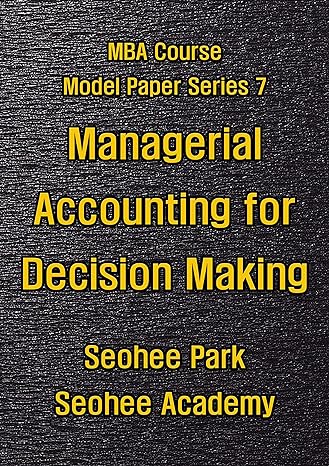Question
Betty and Ralph owned some substantially appreciated raw land located in Carson City, Nevada that they held for investment. After 10 years of owning the
Betty and Ralph owned some substantially appreciated raw land located in Carson City, Nevada that they held for investment. After 10 years of owning the property, they decided to exchange the land for a hotel property located in San Francisco. Because Betty and Ralph didnt know much about the hotel business, they hired Johnson to supervise and manage the hotel. Which of the following statements best describes the federal income tax consequences of the exchange transaction?
Select one:
a.
The transaction fails to qualify under IRC 1031 because raw land cannot be exchanged for a hotel and qualify as an exchange of like kind property.
b.
The transaction fails to qualify under IRC 1031 because real property located in one state cannot be exchanged for realty located in another and qualify as an exchange of like kind property.
c.
The transaction fails to qualify under IRC 1031 because real property held for investment cannot be exchanged for realty held for use in a trade or business.
d.
The transaction fails to qualify under IRC 1031 because unimproved real property cannot be exchanged for improved realty.
e.
None of the above answers is correct.
For purposes of this question, assume the transaction described in Question 2 above qualifies as a like kind exchange. Assume that Betty and Ralph exchange the land for the hotel and cash. For this purpose assume the following:
Fair Market Value of the land at the date of exchange: $5 MM
Adjusted Basis in the land at the date of exchange: $2 MM
Land Liabilities: $-0-
Fair Market value of the hotel: $4 MM
Cash received by Betty and Ralph: $1 MM
Which of the following statements best describes the federal income tax consequences of the exchange transaction?
Select one:
a.
The transaction fails to qualify under IRC 1031 because Betty and Ralph receive cash in connection with the exchange.
b.
The transaction qualifies as a like-kind exchange under IRC 1031 but Betty and Ralph must recognize $3 MM gain.
c.
The transaction qualifies as a like-kind exchange under IRC 1031 but Betty and Ralph must recognize $1 MM gain.
d.
The transaction qualifies as a like-kind exchange under IRC 1031. Accordingly, Betty and Ralph must defer a loss of $3 MM.
e.
None of the above answers are correct.
Step by Step Solution
There are 3 Steps involved in it
Step: 1

Get Instant Access to Expert-Tailored Solutions
See step-by-step solutions with expert insights and AI powered tools for academic success
Step: 2

Step: 3

Ace Your Homework with AI
Get the answers you need in no time with our AI-driven, step-by-step assistance
Get Started


